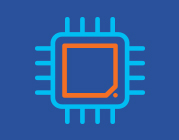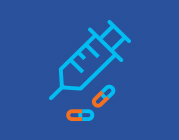


Serious and organised crime in the EU features a great variety of criminal activities, which are increasing in complexity and scale. The profits generated by some of the successful OCGs and individual criminals active in the EU are enormous and rival those of multinational corporations.

More than 5,000 OCGs operating on an international level are currently under investigation in the EU. The number of OCGs operating internationally highlights the substantial scope and potential impact of serious and organised crime on the EU.

Many of the OCGs are highly flexible and display great adaptability in the speed with which they adjust their modi operandi or whole business models to changes in the environment. Many criminal activities are increasingly complex and require a variety of skills as well as technical expertise to carry them out.

The most threatening OCGs are those which are able to invest their significant profits in the legitimate economy as well as into their own criminal enterprises, ensuring business continuity and a further expansion of their criminal activities. The involvement in serious and organised crime may allow some terrorist groups to generate funds to finance terrorism-related activities.

An increasing number of individual criminal entrepreneurs offer Crime-asa- Service (CaaS). The online trade in illicit goods and services enables individual criminals to operate their own criminal business without the need for the infrastructures maintained by ‘traditional’ OCGs.


Criminals quickly adopt and integrate new technologies into their modi operandi or build brand-new business models around them. The use of new technologies by OCGs has an impact on criminal activities across the spectrum of serious and organised crime. This includes developments online, such as the expansion of online trade and widespread availability of encrypted communication channels, as well as other aspects of technological innovation such as more accessible and cheaper highperformance drone technology. Technology has a fundamental and lasting impact on the nature of crime.

Document fraud, money laundering and the online trade in illicit goods and services are the engines of organised crime in the EU. Although neither document fraud nor money laundering have a direct impact on most citizens in the EU, they facilitate most, if not all, other serious and organised crime. The online trade in illicit goods and services is expanding rapidly. Almost all types of illicit goods are now bought and sold via online platforms that offer the same ease of use and shopping experience as most legal online platforms. Depending on the type of commodity and service, this includes platforms both on the surface web and the Darknet. Data is also traded as a commodity. The online trade in illicit goods and services is foreseen to increasingly disrupt established criminal markets and their traditional distribution models over the next few years.


Cybercrime is a key challenge to digital economies and societies. Cyber-dependent crime is underpinned by a mature CaaS model, providing easy access to the tools and services required to carry out cyberattacks. Child Sexual Exploitation (CSE) perpetrated online is increasingly profit driven. The growth of card-not-present (CNP) fraud, coupled with successful industry measures to tackle card-present (CP) fraud, has resulted in CNP fraud accounting for 66% of total card fraud value.

Organised property crime encompasses a range of different criminal activities carried out predominantly by highly mobile OCGs operating across the EU. A steady increase in the number of reported burglaries over recent years is a particular concern in many Member States.

The illicit drugs market remains the largest criminal market in the EU. More OCGs are active in the production, trafficking and distribution of illicit drugs than any other phenomenon. The industrial-scale production of synthetic drugs within the EU continues to expand and cements the EU as a key source region for these substances distributed worldwide. OCGs maintain complex trafficking operations cooperating with OCGs on a global scale to orchestrate the wholesale importation of illicit drugs into the EU. Within the EU, the majority of OCGs involved in the distribution of illicit drugs deal in multiple illicit drugs, also called poly-drug trafficking.

Migrant smuggling has emerged as one of the most profitable and widespread criminal activities for organised crime in the EU. The migrant smuggling business is now a large, profitable and sophisticated criminal market, comparable to the European drug markets.

THB for labour exploitation is increasing and is expected to continue to expand. OCGs are expected to exploit the presence of a large number of potentially vulnerable persons in the EU following the migration crisis. Labour exploitation threatens to undermine the legitimate labour market lowering wages and impeding economic growth.
